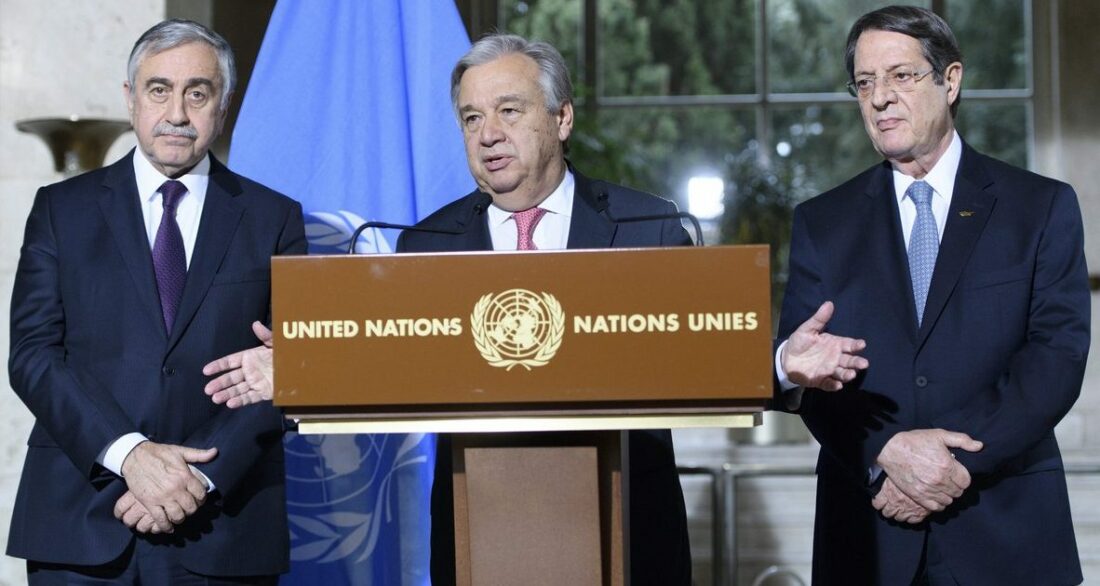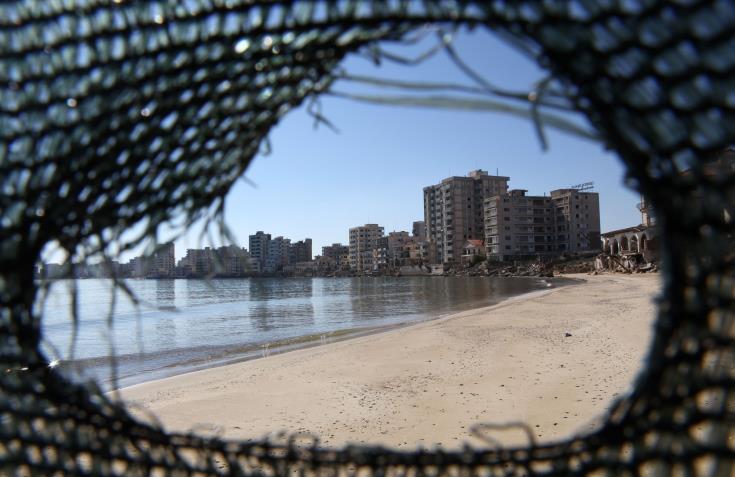
AKEL on the UN Secretary-General’s report regarding his good offices
Statement by Christos Christofides, AKEL Political Bureau member
AKEL C.C. Press Office, Saturday 16 June 2018
The UN Secretary-General’s report, which has been released, concerns the progress in the procedure to solve the Cyprus problem, which the UN Security Council had requested before proceeding with the regular evaluation and renewal of the mandate of the United Nations Peacekeeping Force in Cyprus (UNFICYP).
The main conclusion stemming from the Report and reaffirming the concerns, which we as AKEL are expressing since the Crans Montana conference and thereafter, is that as regards the Cyprus problem we are in a very dangerous period of stagnation. Characteristically the UN Secretary-General states that “the continuing absence of a dialogue for almost a year after Crans Montana and the uncertain prospects for the future are a serious cause of concern for many Cypriots and the international community.”
Among other things, the UN Secretary-General:
- Reaffirms the assessment he had recorded in his Report submitted last September about unprecedented progress that had been made both before and during the negotiations at Crans Montana on many key issues. This is an assessment that differs and clashes with the Anastasiades narrative.
- Considers the seeking of a solution within the parameters of the UN and the body of work that has already been done as a prerequisite.
- As for the six-point framework, he reiterates that this is a document that had been presented on 30 June 2017.
- He records the Akinci statement accepting the Framework and the statements Anastasiades subsequently made and which led to further public exchanges to conclude that the sending of a representative of the international organization in the coming weeks is an opportunity for the sides to clarify their positions in an official manner. He considers that in-depth consultation needs to be conducted in order to see whether the conditions are or are not mature for a resumption of a meaningful procedure.
- The UN SG insists on a cross-negotiation to achieve a strategic agreement on the six key issues, which if achieved will pave the way for a comprehensive solution. That is to say, in essence he stresses that the verbal declarations that we agree with the Framework aren’t enough and he explains why the methodology he himself proposes must be accepted.
- Regarding the natural gas issue, he recalls the relevant convergence which solves the issue in question to the benefit of both communities. However, he does not proceed to denounce in any way Turkey’s unacceptable and illegal activities in the Exclusive Economic Zone of the Republic of Cyprus, but is merely content to express concern about developments near the coasts of Cyprus and calls for a peaceful resolution of the differences.
- He underlined that the leaders themselves bear the primary responsibility for the negotiations, the need for them to recapture the sense of urgency, to address the erosion of trust and deliver strong and unambiguous signals of political will.
- With regards the role of the guarantor powers, he is content to make general comments. He notes that they (the leaders) must do their part and commit themselves in a decisive and constructive manner. More specifically with regards Turkey, although he notes that it has expressed doubts about the possibility of a solution on the agreed parameters, he records that it (Turkey) has reiterated its support for a “viable solution” to the Cyprus problem.
- Regarding the stand that the United Nations will adopt, he makes the UN’s readiness to engage in a new effort to resolve the Cyprus problem quite clear, on the indispensable precondition that it will be meaningful; a precondition that is described in detail and explained both in the Report submitted last September by the UN SG and in today’s Report too.
The Report of the UN Secretary-General constitutes a confirmation of the concern which has developed among the international community about the stalemate situation on the Cyprus problem, and sounds the alarm about the future even more urgently. He calls on the two leaders to demonstrate a genuine political will for a solution, to engage in a procedure that is meaningful, and once again, exempts Turkey from any responsibilities. This is a stand that we must reflect on.
The Report fully confirms AKEL’s assessments about what happened at Crans Montana and all that subsequently followed to date, as well as with regards what needs to be done from now onwards so that the prospect of a solution to the Cyprus problem which is lost today can at long last be recovered.
We hope the coming of the special envoy of the international organization marks the exit of the Cyprus problem from the dangerous current deadlock. We hope that both leaders will respond positively and that Turkey will demonstrate in practice the readiness for a solution that it is signaling in public. We call on President Anastasiades to make use of the special envoy’s coming and the only existing way to achieve it is to express a clear position that he is ready to proceed in the way that the UN Secretary-General proposes as he also reiterates it in his new Report, otherwise he will be held responsible for the devastating consequences that will follow.




